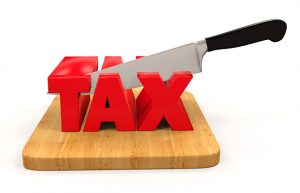 Today in tax tweets, we are reminded of the stark difference between Democrats and Republicans when it comes to snatching our hard-earned dollars to sustain a yearly federal budget that numbers in the trillions.
Today in tax tweets, we are reminded of the stark difference between Democrats and Republicans when it comes to snatching our hard-earned dollars to sustain a yearly federal budget that numbers in the trillions.
Republicans remind us that regular individuals will pay less next year under the new tax breaks recently passed by Congress.
Today is Tax Day and the last time that you will ever have to file your taxes under the old, broken, and complicated system! pic.twitter.com/4vEiqg1WrC
— Rep. Scott Tipton (@RepTipton) April 17, 2018
#2: Nearly Doubled Standard Deduction
The new code will increase the standard deduction to $12,000 for individuals and $24,000 for married couples – nearly double the amounts available under the old tax code. This will protect more income from taxes.— Rep. Doug Lamborn (@RepDLamborn) April 17, 2018
In addition, Lamborn points out that people too poor to buy health insurance won’t have to pay hefty taxes anymore and the child tax credit has been doubled.
Meanwhile, Democrats are complaining that people who earn a lot of money will see bigger tax cuts than people who don’t have large incomes.
Basic math tells us that people who earn more money, make more money than people who earn less.
Here’s an equation even the most hard-headed of Democrats should understand.
If Johnny makes $15,000 a year, should Johnny get a $20,000 tax cut?
The answer is no.
If Martha makes $500,000 a year, should Martha get a $20,000 tax cut? Yes, Martha probably should.
That’s the basic premise behind our tax code. If you make a lot of money, you pay a lot of taxes, if you don’t make a lot of money, taxpayers will give you their hard-earned money via Uncle Sam.
Meanwhile, Democrats need to get their talking points in order.
The #GOPTaxScam was not written for the middle class. In our state, the top 5% of earners get 62% of tax breaks thanks to the Republican plan. This reckless law stands to harm working families across America, on #TaxDay and every other day of the year. pic.twitter.com/z1pUF6XMIn
— Rep. Diana DeGette (@RepDianaDeGette) April 17, 2018
Tax breaks can go towards more than one income bracket as the above examples illustrate, so if the top earners qualify for 62 percent of the tax breaks, do middle-income earners qualify for 80 or 90 percent? As for low income earners, they already pay the lowest amount of taxes because they don’t make much money (See Johnny for an explanation).
